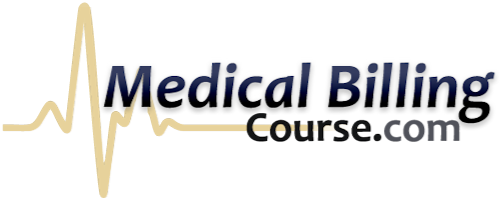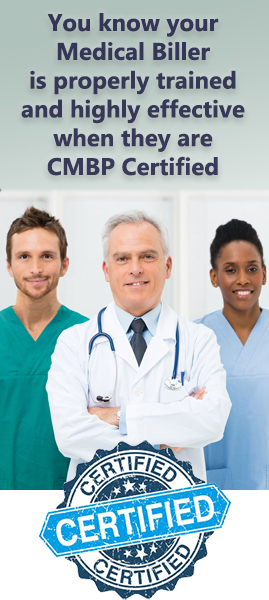- 08/28/2025
- Posted by: Medical Billing Course
- Categories: Medical Billing, Medical Billing Software

Best Medical Billing Software: Reviews, Comparison & Buying Guide
Are you on the hunt for the perfect medical billing software to streamline your revenue cycle, cut down on denials, and enhance your cash flow? This guide is your go-to resource for understanding what medical billing software is, why it’s crucial for healthcare practices, the must-have features to look for, and how to choose the right platform for your needs. Dive into our detailed reviews of top solutions like Kareo, Athenahealth, CureMD, AdvancedMD, DrChrono, RXNT, CollaborateMD, Tebra, EZClaim, and NextGen. Plus, discover how the latest trends in AI, cloud, and automation are shaping the future of billing. Along the way, see how MedicalBillingCourse.com’s certification programs can equip you to master these tools and elevate your medical billing career.
Understanding Medical Billing Software: Why It’s a Game-Changer
Medical billing software is a digital powerhouse designed to automate claims submission, patient invoicing, payment tracking, and reporting—making the entire revenue cycle management (RCM) process a breeze. By ditching manual tasks like paper claims and spreadsheets, it slashes errors, speeds up reimbursements, and boosts financial clarity for healthcare providers. Medical billing is a great choice for those looking for a stable career.
Streamlining Healthcare Revenue Cycle Management with Medical Billing Software
Medical billing software automates every step of RCM—patient registration, insurance verification, claims generation, submission, and payment posting—through a single, unified interface.
- Eligibility Verification: Real-time insurance checks to nip claim rejections in the bud.
- Automated Claims Scrubbing: AI-powered error detection before submission.
- Batch Submission: Securely sends electronic claim batches to payers.
- Denial Tracking: Flags denials and routes them for immediate correction.
Optimizing these workflows shaves days off reimbursement cycles and keeps cash flow steady by ensuring claims are accurate and paid promptly.
The Key Benefits of Medical Billing Software

Before diving into deeper features, consider these core advantages:
- Improved Cash Flow: Faster claim turnaround and fewer denials speed up revenue.
- Enhanced Accuracy: Automated code validation and claim scrubbing minimize errors.
- Regulatory Compliance: Built-in HIPAA and ICD-10 updates ensure you’re always in the clear.
- Comprehensive Reporting: Real-time dashboards and financial analytics inform strategic decisions.
These benefits collectively support better practice management and financial health, freeing your team to focus on patient care rather than paperwork.
Benefits of Medical Billing Software
Medical billing software offers several advantages, including improved cash flow through faster claim turnaround and fewer denials, enhanced accuracy via automated code validation and claim scrubbing, and regulatory compliance through built-in HIPAA and ICD-10 updates. These features collectively support better practice management and financial health, allowing staff to focus on patient care.
– Healthcare Information and Management Systems Society (HIMSS), “Revenue Cycle Management: A Practical Guide” (2022)
This source backs up the claims about the benefits of medical billing software by providing a practical guide to revenue cycle management.
Ensuring HIPAA Compliance and Data Security with Medical Billing Software
Medical billing solutions enforce HIPAA standards through data encryption, role-based access controls, and detailed audit logs.
- Encryption at Rest and in Transit: Protects patient data during storage and transmission.
- User Authentication and Permissions: Ensures only authorized users have access to sensitive records.
- Audit Trail Monitoring: Tracks every change, supporting compliance audits.
HIPAA Compliance and Data Security
Medical billing solutions ensure HIPAA compliance through data encryption, role-based access controls, and detailed audit logs. Encryption protects patient data during storage and transmission, user authentication restricts access to sensitive records, and audit trails support compliance audits. These safeguards build patient trust by securing protected health information.
– U.S. Department of Health & Human Services, “Summary of the HIPAA Privacy Rule” (2024)
This citation supports the article’s claims regarding HIPAA compliance and data security measures implemented by medical billing software.
Must-Have Features in Top Medical Billing Software Solutions
Choosing robust software starts with understanding critical feature sets that drive efficiency, compliance, and patient satisfaction.
Claims Submission and Denial Management in Medical Billing Software
Claims submission and denial management automate error detection, resubmission, and appeals:
These interconnected processes reduce manual follow-up and accelerate resolution, boosting clean-claim rates and overall reimbursements.
The Role of EHR and Practice Management Integration
Seamless interoperability between billing software, EHR, and practice management systems ensures data flows in real time:
- Unified Patient Records: Demographic and visit data sync automatically.
- Charge Capture Integration: Clinical charges are imported directly into billing queues.
- Scheduling and Billing Cohesion: Appointment details populate invoicing templates.
This integration eliminates duplicate data entry, reduces transcription errors, and provides a single source of truth for clinical and financial operations.
Enhancing Medical Billing Efficiency with Automation and AI
Advanced automation and AI capabilities deliver next-level productivity:
- Predictive Denial Prevention: Machine learning identifies high-risk claims before submission.
- Auto-Coding Assistance: Suggests correct ICD-10 and CPT codes based on documentation.
- Intelligent Payment Posting: Matches electronic remittance advice to open claims.
- Chatbot Support: Guides staff through billing queries and workflow prompts.
By offloading time-consuming tasks, staff can focus on complex cases and patient outreach.
Reporting and Patient Engagement Tools You Should Expect
Modern billing platforms include both financial analytics and patient communication features:
- Customizable Dashboards: Visualize cash flow, denial rates, and aging summaries.
- Patient Portal Integration: Enables online bill pay, statements, and messaging.
- Automated Statements and Reminders: Reduce late payments through scheduled notifications.
- Analytics Reports: Drill-down on payer performance and practice profitability.
Access to these insights helps drive strategic decisions and enhances patient satisfaction through transparent billing.
Choosing the Right Medical Billing Software for Your Practice or Business
Selecting software requires aligning features, costs, and support with your organization’s unique needs.
Factors to Consider When Selecting Software
Key decision drivers include:
- Practice Size and Specialty: Scalability for multiple providers vs. simplicity for solo billers.
- Pricing and Budget: Up-front fees, subscription tiers, and transaction costs.
- Customer Support: Availability of training, helpdesk, and dedicated account management.
- User Interface and Workflow Customization: Ease of use and configurable templates.
- Security and Compliance: Certified HIPAA compliance and regular software updates.
Balancing these factors ensures you invest in software that fits your operational model and growth plans.
Understanding Pricing Models Among Medical Billing Software Solutions
Pricing can take several forms:
Understanding these variations helps you forecast the total cost of ownership and ROI.
Best Software Solutions for Small Practices vs. Large Organizations
Small practices often need cost-effective, turnkey solutions—EZClaim and NextGen excel here—while larger organizations benefit from enterprise-grade platforms like AdvancedMD and Athenahealth that support multi-location RCM and deep analytics.
The Importance of User Experience and Customer Support in Software Choice
An intuitive interface reduces training time and errors, while responsive support ensures quick resolution of issues. Look for solutions offering comprehensive onboarding, regular webinars, and 24/7 helpdesk options to maintain operational uptime.
Top Medical Billing Software Solutions Reviewed in 2024
Below are in-depth evaluations of the leading platforms, including their key features, pros and cons, pricing models, and ideal use cases.
Kareo Medical Billing Software
Kareo Billing simplifies claims management with automated submission and denial workflows. Its cloud-based dashboard provides real-time claim status and financial reporting to keep practices informed.
Key Features
- Automated Claims Scrubbing and Submission
- Real-Time Eligibility Verification
- Practice Management Integration
- Patient Statement Automation
Pros and Cons
- Pros: User-friendly interface, strong EHR interoperability, robust reporting
- Cons: Limited AI-driven coding assistance, higher per-user fees for small practices
Pricing Model Subscription pricing starts at $150 per provider per month, with optional add-ons for patient engagement tools.
Ideal For Small to mid-sized practices seeking a balanced mix of ease-of-use and advanced billing features.
Integration Capabilities: Native connections with leading EHRs, API access for custom integrations.
HIPAA Compliance and Security: End-to-end data encryption, role-based access controls, and audit logs.
User Experience and Support: Comprehensive onboarding webinars, 24/7 phone and chat support, and an extensive knowledge base.
Leverage your Kareo expertise by enrolling in our Medical Billing Course Program – Part 2 to master advanced revenue cycle workflows.
Athenahealth Support for Revenue Cycle Management and EHR Integration
Athenahealth combines RCM and EHR into a unified cloud platform that automates revenue workflows while maintaining a comprehensive patient record.
Key Features
- Seamless EHR and Billing Integration
- AI-Powered Denial Prevention
- Automated Patient Collection Tools
Pros and Cons
- Pros: Strong interoperability, predictive analytics, extensive partner network
- Cons: Higher learning curve, customization can be complex
Pricing Model: Tiered subscription starting at $250 per provider per month, with transactional add-on fees.
Ideal For Large multispecialty practices and hospital systems needing enterprise-grade scalability.
HIPAA Compliance and Security, SOC 2 Type II certified, AES-256 encryption, continuous vulnerability monitoring.
User Experience and Support: Dedicated account teams, extensive training library, and on-demand support.
CureMD: Leading Choice for Medical Billing and Practice Management
CureMD offers a full suite of RCM, EHR, and practice management tools with advanced AI claim scrubbing and predictive analytics.
Key Features
- AI-Powered Claim Scrubbing
- Real-Time Dashboard Analytics
- Patient Portal and Engagement Tools
Pros and Cons
- Pros: Robust AI features, customizable reports, integrated telehealth modules
- Cons: Interface complexity, longer implementation time
Pricing Model Starts at $200 per provider per month, volume discounts available. You can find more information about our offerings at the medical billing course program.
Ideal For Mid-sized to large practices seeking sophisticated analytics and patient engagement.
HIPAA Compliance and Security: ISO 27001 certified, multi-factor authentication, encrypted backups.
User Experience and Support: On-site implementation support, regular feature webinars, 24/7 helpdesk.
AdvancedMD: Catering to Mid to Large Practices
AdvancedMD delivers scalable RCM, telehealth, and analytics tools tailored for growing practices and health systems.
Key Features
- Customizable Workflow Automation
- Integrated Telehealth and Patient Engagement
- Advanced Reporting and Analytics
Pros and Cons
- Pros: Highly configurable, robust telehealth, deep analytics
- Cons: Higher price point, steeper learning curve
Pricing Model Starting at $300 per provider per month, with setup fees for enterprise deployments.
Ideal For Mid-sized to large multispecialty groups requiring tailored workflows and detailed analytics.
HIPAA Compliance and Security: Continuous vulnerability scanning, SSAE 18 audit reports, and data encryption.
User Experience and Support: White-glove onboarding, dedicated success managers, 24/7 support.
DrChrono’s Mobile Billing Features
DrChrono’s mobile apps empower billers and providers to manage claims and patient records on the go.
Key Features
- Native iOS/Android Claims App
- Voice-to-Text Clinical Documentation
- Mobile Patient Portal
Pros and Cons
- Pros: Exceptional mobility, intuitive UI, telehealth integration
- Cons: Limited desktop functionality, fewer analytics features
Pricing Model $99 per user per month for mobile billing, upgrade tiers for full RCM.
Ideal For Independent billers and small practices prioritizing mobility.
HIPAA Complianceand Security Device encryption, secure token authentication, and remote wipe capabilities.
User Experience and Support: In-app tutorials, email support, and community forums.
RXNT, CollaborateMD, and Tebra: Pricing and Patient Engagement Comparison
Below is a side-by-side feature and pricing comparison for mid-range solutions:
EZClaim and NextGen: Automation and Small Practice Support
For small practices, these two deliver affordable automation and essential billing tools:
The Future of Medical Billing Software: AI, Cloud, and Automation

Emerging Technologies Revolutionizing Medical Billing Processes
Artificial intelligence and machine learning deliver predictive insights to prevent denials, automate code assignment, and forecast cash flow. Intelligent agents handle tasks such as prior authorization, freeing billers to address complex claims.
Enhancing Scalability and Remote Accessibility with Cloud-Based Solutions
Cloud architectures provide infinite scalability, platform-agnostic access, and automatic updates—allowing billers to work securely from anywhere while ensuring continuous software improvements without downtime.
The Impact of Automation on Reducing Billing Errors and Denials
Automation enforces standardized workflows, real-time code validation, and automated appeals processing. Practices that adopt these tools report up to 50% fewer denials and a 30% faster reimbursement cycle.
How Medical Billing Software Can Boost Your Career and Business Success
Enhancing Certification and Job Opportunities with Medical Billing Software Proficiency
Mastering top platforms validates your skill set to employers and clients. Certification programs like ours help prepare you for proper software training—preparing you to hit the ground running and command higher compensation as a certified medical biller.
Launching a Home-Based Medical Billing Business with Software
Home-based entrepreneurs leverage comprehensive RCM tools to serve multiple clients with minimal overhead. Automated claims workflows, secure patient portals, and robust reporting enable scalable revenue streams from any location.
Integrating Software Training for Practical Skill Development in Course Programs
Our Medical Billing Course Program – Part 1 covers foundational RCM concepts and introduces billing platforms, while Part 2 deepens proficiency with hands-on labs in leading software. A specialized HIPAA module (HIPAA Compliance) ensures you master regulatory requirements essential for secure billing operations.
Pricing Trends and Cost Considerations for Medical Billing Software
Typical Costs of Medical Billing Software for Different Practice Sizes
Larger organizations often negotiate custom pricing based on volume and feature sets.
Common Pricing Models and Hidden Fees to Watch For
- Subscription Fees: Monthly charges per provider.
- Transaction Fees: Charges per claim or payment posting.
- Setup and Implementation Fees: One-time onboarding costs.
- Add-On Module Fees: Extra charges for telehealth, analytics, or patient engagement.
Verify all fees in writing to avoid surprises and ensure predictable budgeting.
Maximizing ROI When Investing in Medical Billing Software
- Negotiate Volume Discounts: Combine multiple locations or services.
- Opt for Bundled Modules: Leverage integrated EHR or patient portal features.
- Train Staff Thoroughly: Reduce errors and speed adoption with targeted courses.
- Monitor Key Metrics: Use built-in analytics to identify bottlenecks and continually optimize workflows.
Investing in comprehensive training—such as our advanced modules—amplifies software ROI by empowering your team to use every feature effectively.
– “Medical billing software is not just a tool; it’s the backbone of a successful revenue cycle. It automates complex processes, minimizes errors, and ensures practices get paid accurately and on time. Without it, practices would struggle to stay financially viable in today’s healthcare landscape.” – Tri Smith, Instructor, MedicalBillingCourse.com
Tri Smith is a dedicated instructor with over five years of experience at MedicalBillingCourse.com. He is passionate about equipping students with the knowledge and practical skills needed to excel in the medical billing field, taking pride in preparing them for thriving and rewarding careers.
Kareo, Athenahealth, CureMD, AdvancedMD, DrChrono, RXNT, CollaborateMD, Tebra, EZClaim, and NextGen each bring distinctive strengths to medical billing. By evaluating your practice size, budget, and technical requirements, you can choose the solution that streamlines workflows, safeguards patient data, and accelerates revenue. As AI, cloud, and automation continue to evolve billing platforms, gaining hands-on proficiency through certification courses ensures you stay ahead in a competitive healthcare market. Whether pursuing a new career, advancing existing skills, or launching a home-based billing business, mastering top medical billing software is the key to sustainable success.

